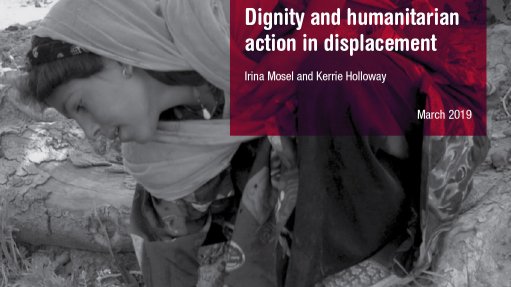
Dignity is a frequently invoked concept in humanitarian action and human rights. Yet, despite being a word with positive connotations, there is little agreement as to what it exactly entails.
This paper explores what a dignified humanitarian response could or should look like. It suggests six recommendations for incorporating dignity into a humanitarian response:
- Invest time and resources in listening to the affected population from the start of the response, and use this information to inform project design and implementation.
- Use more face-to-face communication, especially in the assessment phase of the humanitarian response, and pay attention to what means of communication are appropriate at each stage.
- To better understand the local culture and language, include anthropologists, sociologists, translators and others in the response, who can help in understanding the affected population and the dynamics of their situation.
- Invest in programmes that promote self-reliance, where possible, and encourage more participation by affected communities in project design and implementation.
- Seek complementarity between local, national, regional and international actors to harness their strengths and reach better humanitarian outcomes that support the dignity of affected populations.
- Be more realistic about what humanitarians can and cannot do, and do not promise to uphold dignity. Rather, understand what it means in practice, in each context, and the limits of what can be done about it in the midst of a humanitarian response.
The goal of this project was to understand what dignity meant to affected people in different contexts. It explores how refugees, internally displaced people and returnees in Afghanistan, Bangladesh, Colombia, Lebanon, the Philippines and South Sudan understand dignity, and whether (and how) they feel that their dignity has been upheld in displacement. Their understandings are then compared with those of humanitarian workers in these contexts, analysing what this means for humanitarian policy, programme design and implementation more broadly, and the localisation agenda more specifically.
The research found that the situation from which people fled, the location to which they fled and the length of displacement all contributed to whether a response was experienced as dignified. Respect and self-reliance were both commonly referred to by affected people as being related to their dignity and interviewees placed more emphasis on how aid was given, rather than what was given. The main components of a dignified response included transparency, clear targeting and face-to-face communication. It also found that humanitarians saw dignity in terms of rights and protection, respect and communication, agency and independence and, in acute emergency settings, meeting basic needs.
Report by the Overseas Development Institute